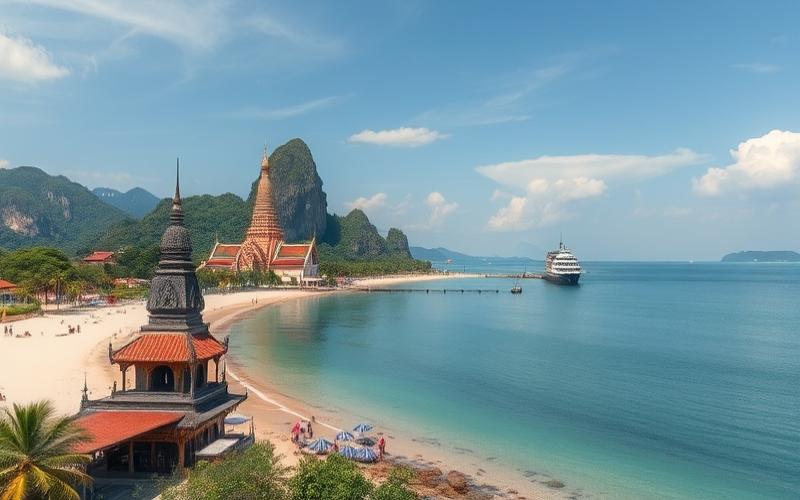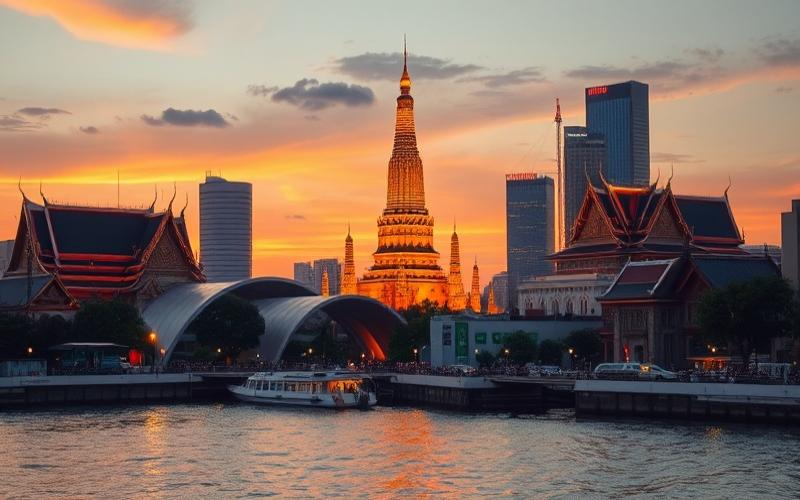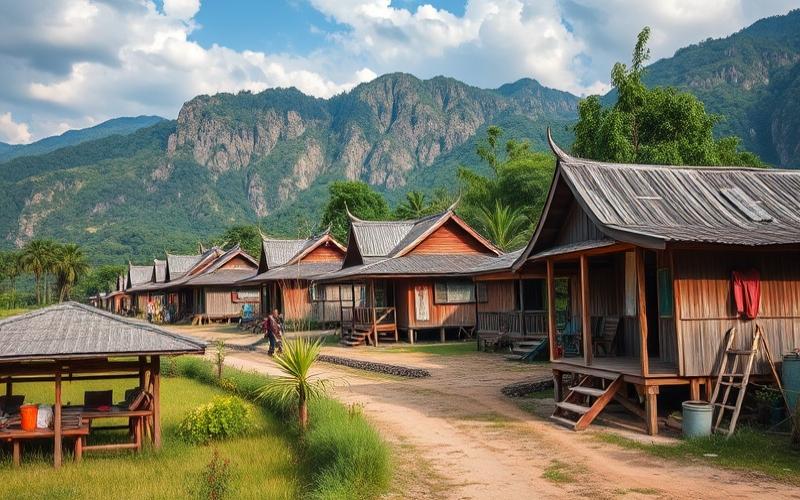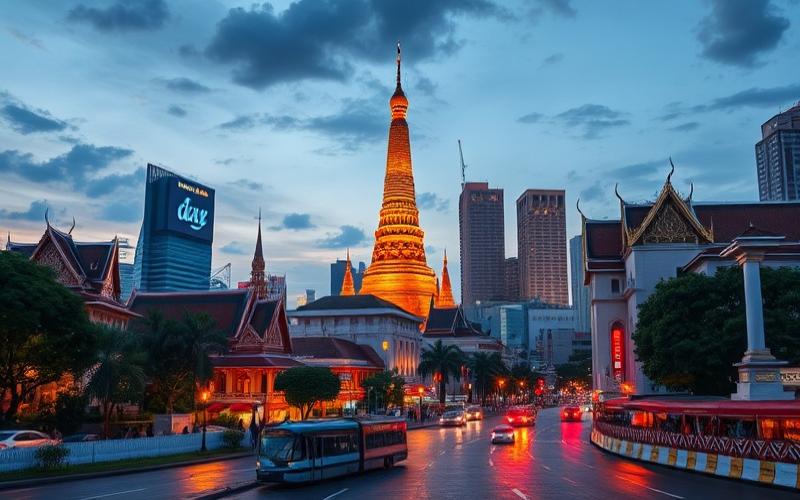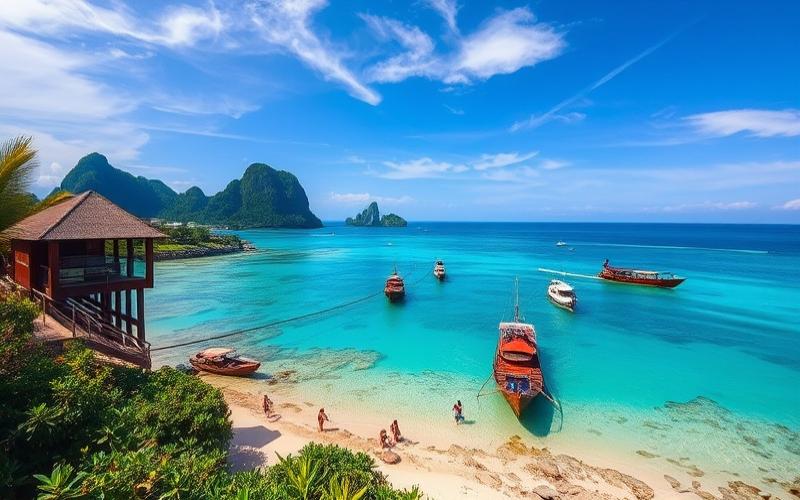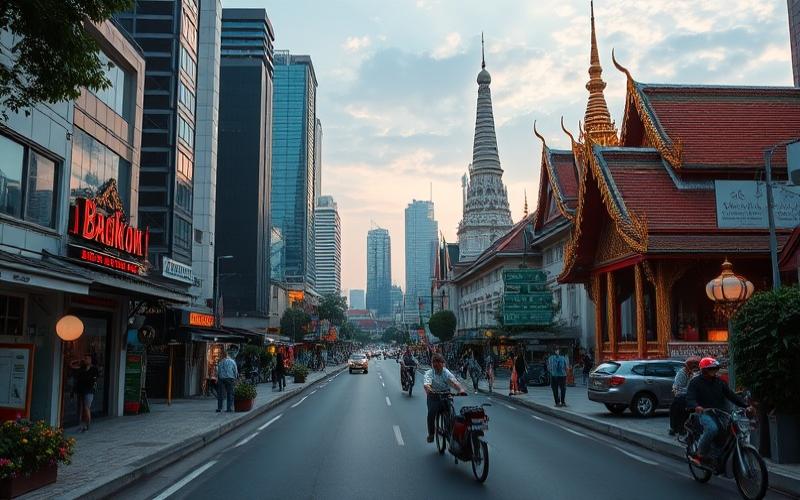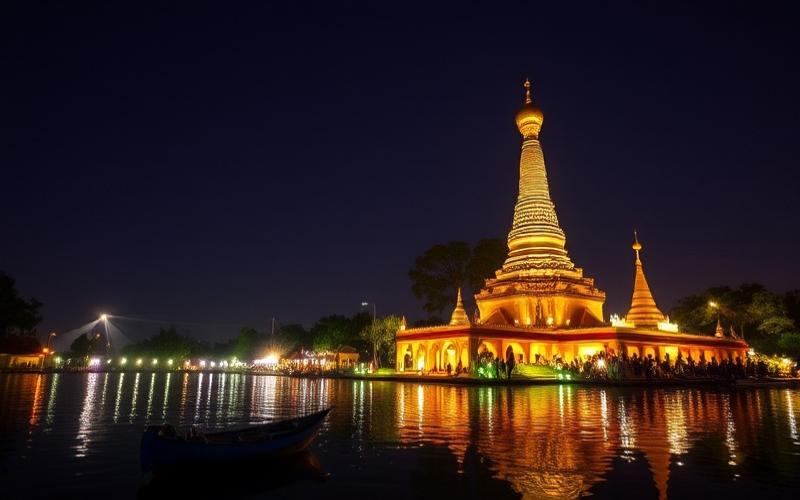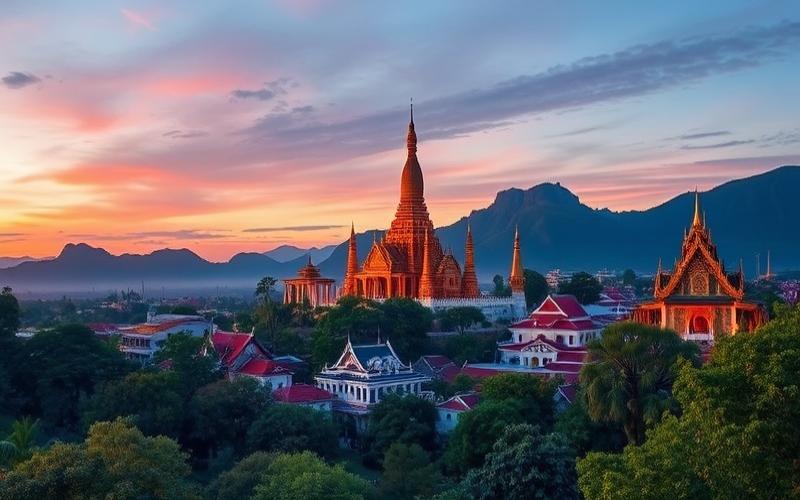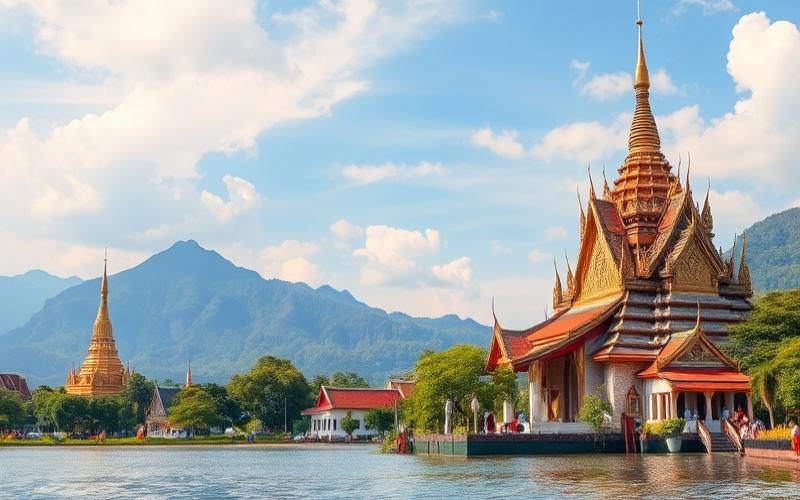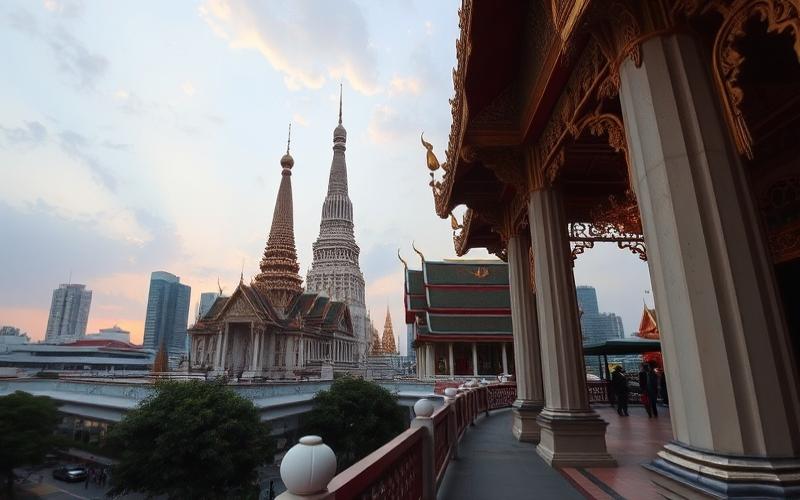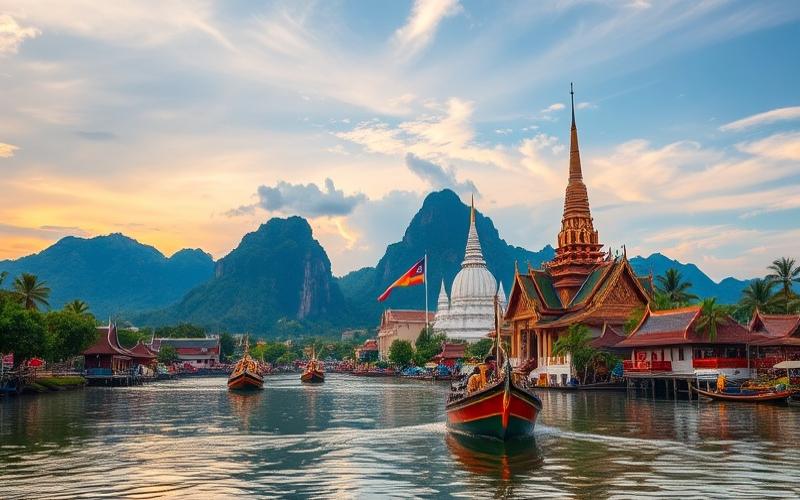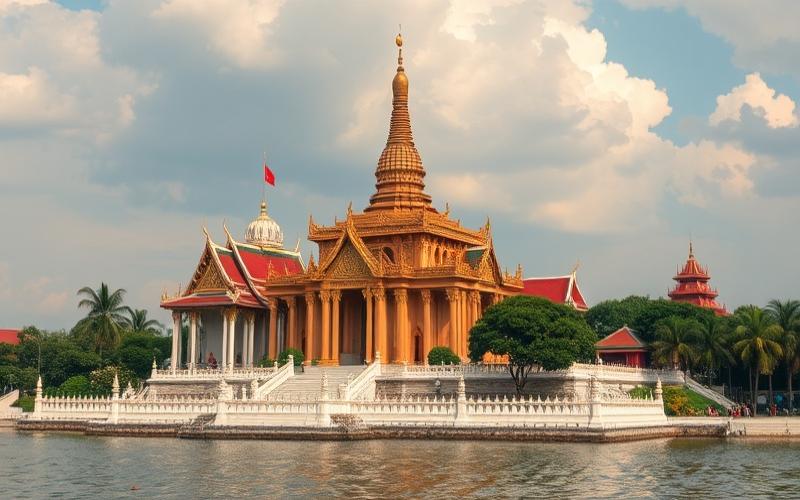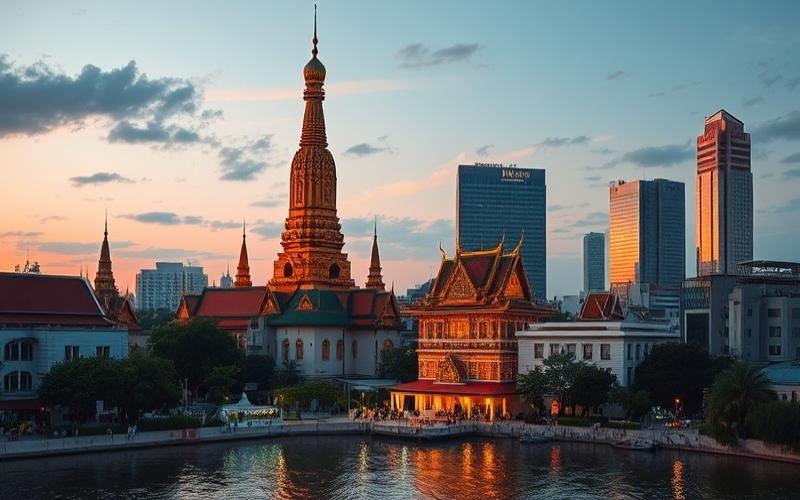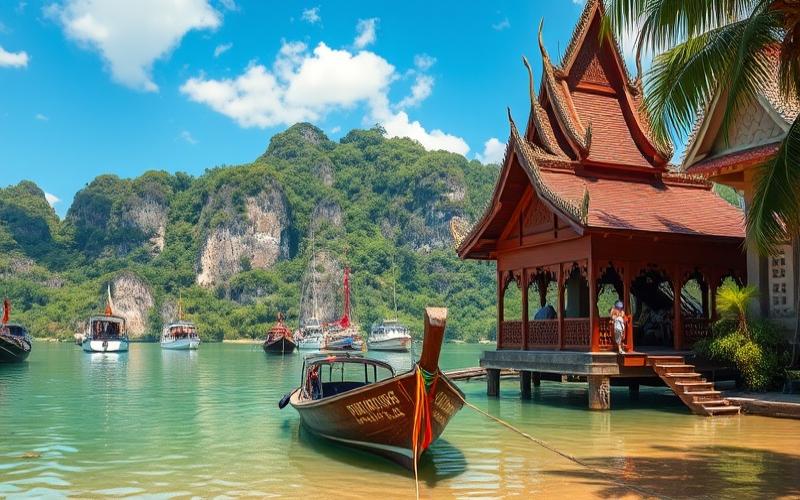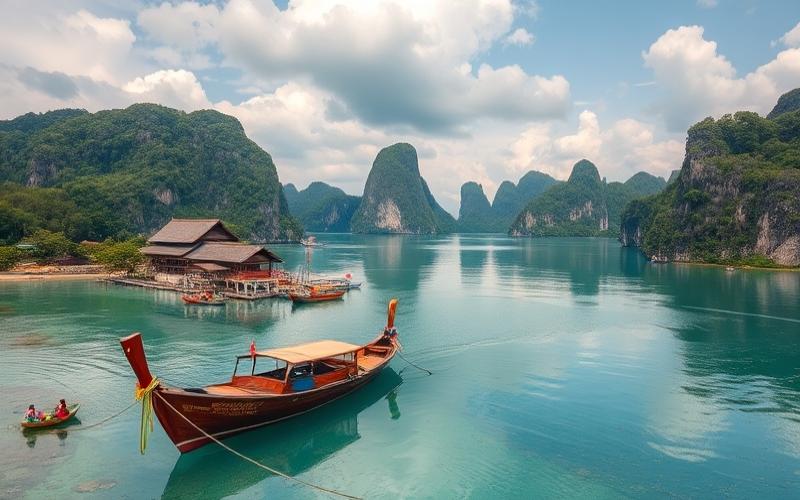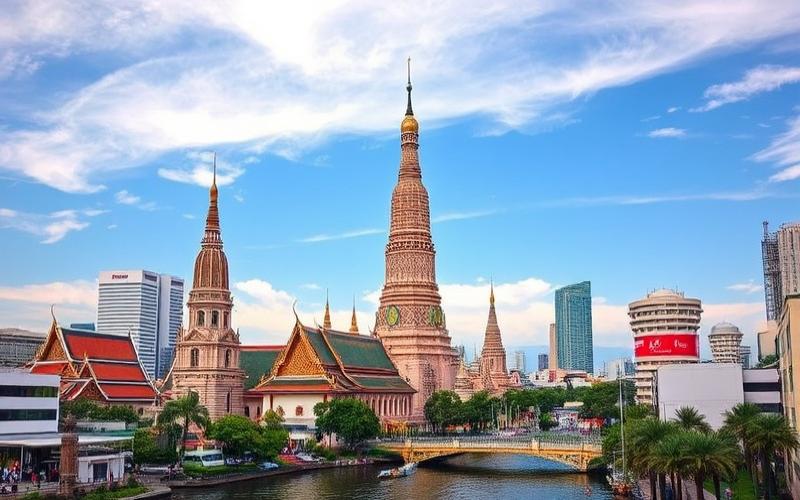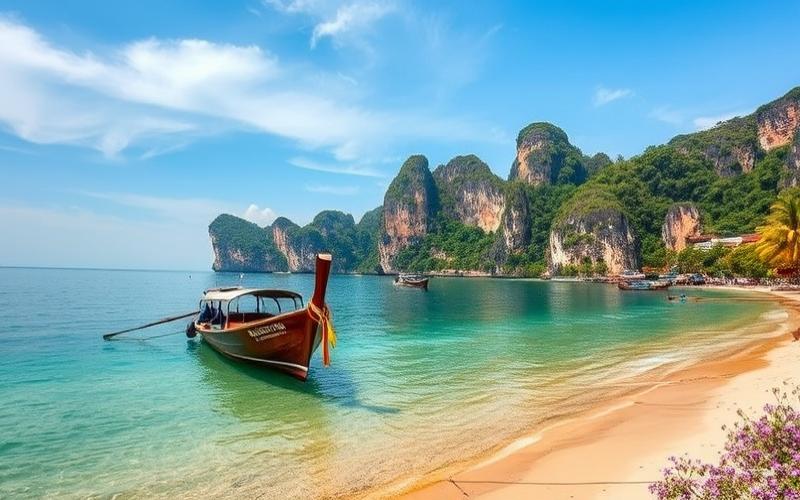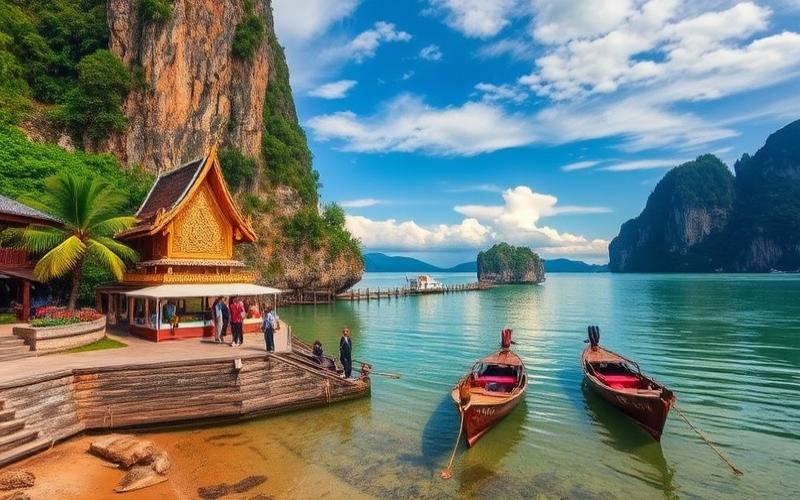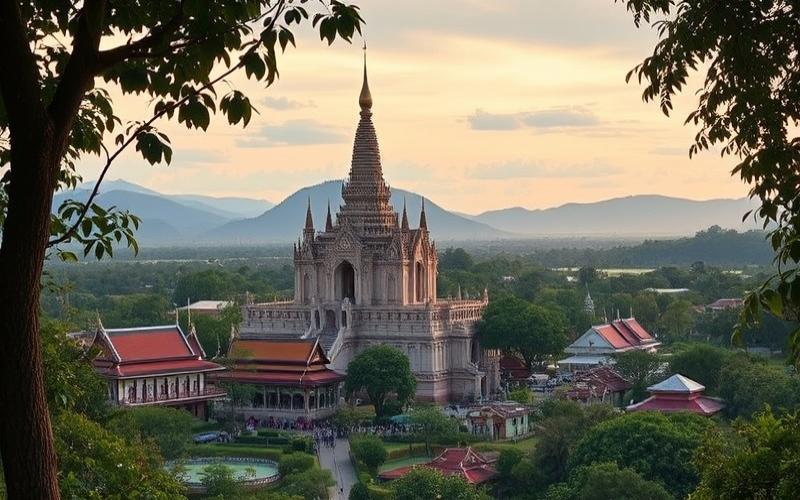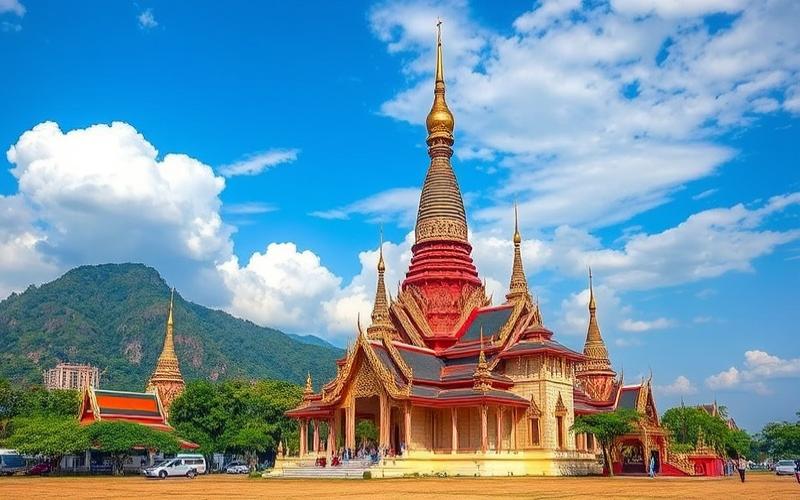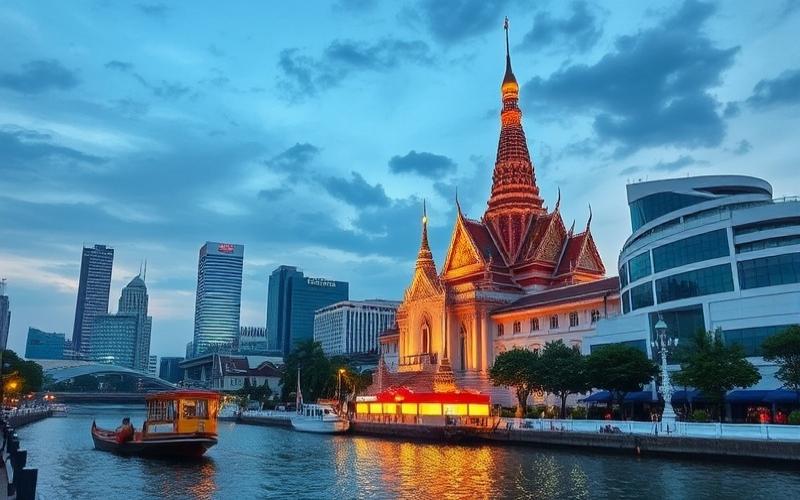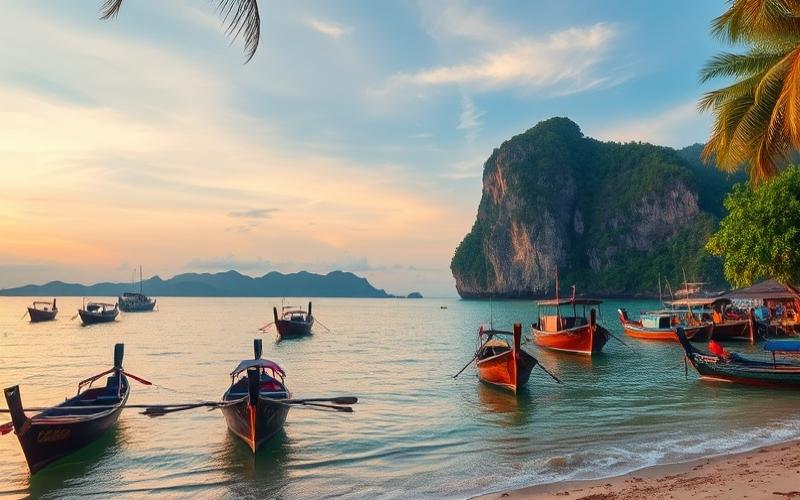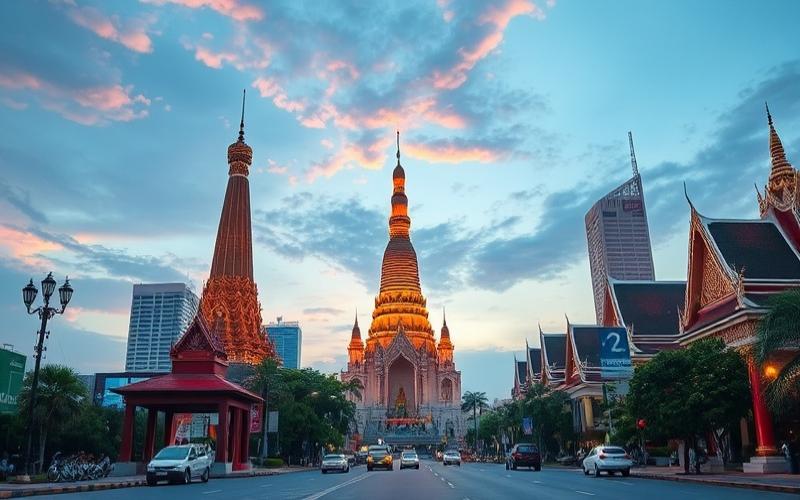
 Published on and written by Cyril Jarnias
Published on and written by Cyril Jarnias
Real Estate Investment in Thailand: Airbnb vs Long-Term Rental
In Thailand’s dynamic economic landscape, the choice between Airbnb and long-term rental for real estate investments becomes crucial. Property owners and prospective investors seek to maximize their returns, and a thorough examination of profitability by city offers essential perspectives.
This article examines Thailand’s rental market fluctuations, where continued tourism growth fuels demand for short-term stays, while traditional leases provide stable income. By exploring the advantages and disadvantages of each option across different locations, this article will guide your investment decision.
Airbnb vs Long-Term Rental Comparison in Thailand
| City | Long-Term Rental 1 Bedroom (€ / year) | Long-Term Rental 1 Bedroom (€ / month) | Airbnb Low Season Average (€ / night) | Airbnb High Season Average (€ / night) |
|---|---|---|---|---|
| Bangkok | 5,280 – 6,720 | 440 – 560 | 25 – 45 | 40 – 70 |
| Chiang Mai | 3,120 – 4,080 | 260 – 340 | 20 – 40 | 30 – 60 |
| Phuket | 4,800 – 8,400* | 400 – 700* | 30 – 60 | 50 – 120 |
| Pattaya | 3,600 – 6,720 | 300 – 560 | 25 – 55 | 40 – 100 |
*Estimate based on tourist market similar to Pattaya and local seasonality.
Advantages and Disadvantages by Rental Type
Long-Term Rental
Advantages:
- Cost Stability: Fixed rent, typically cheaper per month than Airbnb.
- Tenant Security: Regulated lease, less price variation.
- Fewer Additional Fees: Electricity, water, internet bills often negotiated at actual cost or included.
- Less Seasonal Impact: Rates minimally affected by seasonal fluctuations.
Disadvantages:
- Less Flexibility: 6 to 12-month commitments, sometimes high security deposit.
- Fewer Profit Opportunities for Owners: Capped profitability, limited margin during peak seasonal demand.
- Administrative Procedures: Documentation, sometimes proof of income or visa required.
Airbnb (Short-Term Rental)
Advantages:
- Flexibility: Ability to stay from a few nights to several weeks.
- Profit Opportunities for Owners: Significantly higher rates during high season or events, optimizing profitability.
- Simplicity for Tenants: No long-term commitment, quick online booking.
- Included Services: Cleaning, linens, amenities often superior to traditional rentals.
Disadvantages:
- High Prices: Daily cost significantly higher, especially during high season.
- Fluctuating Availability: High booking rates during tourist peaks, difficulty finding affordable accommodation.
- Regulation: In Thailand, rentals under 30 days without hotel license are illegal, exposing owners and tenants to risks.
- Commissions: Airbnb charges approximately 3% per booking on the owner’s side.
2023 Economic Trends and Seasonality
- General rent increases in major cities, particularly Bangkok and Phuket, due to post-Covid tourism recovery and expatriate return.
- Strong seasonality in Airbnb market: prices can double or even triple during high season (November to March, and July-August in Phuket and Pattaya).
- Airbnb Occupancy Rates: High in peak season (70-90%), significant drop in low season (30-50%), impacting actual annual profitability for owners.
- Long-Term Rentals: Less sensitive to seasonality, more stable rents, attractive for expatriates and remote workers.
Seasonality Impact Summary
- Airbnb: Prices and availability heavily impacted by tourist season, making this option expensive for extended stays during demand peaks.
- Long-Term Rental: Better budget predictability, but less flexible for short stays or people in transition.
Opportunities and Risks for Owners
- Airbnb: Opportunity to maximize gains during high demand periods, but more intensive management and legal risks without license.
- Long-Term: Lower profitability but regular income, simplified management, reduced rental risks.
Key Takeaways
For stays of several months, long-term rental remains the most economical and stable solution. Airbnb mainly suits short stays or during low season, but its cost quickly becomes prohibitive long-term in Thai tourist cities.
Good to Know:
In 2023, in Bangkok, renting an Airbnb costs approximately €1,500 per month on average, compared to €500 for long-term rental, making it an expensive option despite its flexibility for short stays. In Chiang Mai, the gap is smaller with Airbnb at €1,000 and long-term rental at €400, reflecting stable tourist demand. Phuket and Pattaya show strong seasonality with Airbnb prices that can double in high season while long-term rentals remain stable around €700 to €1,000 depending on location. Airbnbs offer great flexibility without long-term commitment, but owners can benefit more from variable income opportunities following tourist flows. However, long-term tenants often enjoy reduced expenses without the additional costs associated with utilities typically included in Airbnbs. Long-term lease conditions, typically demanding in terms of security deposit, are offset by housing security and predictable costs.
Seasonal Rental Yield: A City-by-City Analysis
Bangkok shows an average Airbnb rental yield higher than long-term rentals. For 2025, a short-term property via Airbnb generates on average THB32,983 per month (approximately €890) with an occupancy rate of 67% and an average daily rate (ADR) of THB1,704 (€46). For comparison, monthly rents for long-term rentals in the center typically range between THB20,000 and THB30,000 depending on location and standard.
| City | Monthly Airbnb Revenue | Occupancy Rate | ADR (€) | Long-Term Rent (€) |
| Bangkok | 890 | 67% | 46 | 500 – 800 |
| Chiang Mai | ~650* | ~60%* | ~35* | 350 – 600 |
| Phuket | ~970* | >70% high season* | ~50* | 600 – 1,200 |
| Pattaya | ~750* | >65% high season* | ~40* | 450 – 900 |
Key Local Economic Factors Influencing These Yields:
- High occupancy rates in tourist areas, especially during high season (December-April for Koh Samui; year-round for Phuket due to its international airport).
- Strong tourist seasonality, with peaks boosting Airbnb income but also exposing to low periods where yield drops.
- Nightly rate fluctuations, correlated to local events, international holidays, or Asian school vacations.
- Long-term rental: Income stability but capped by local market with minimal seasonal variations.
Main Advantages:
- Short-term rental / Airbnb:
- Significantly higher profitability potential during tourist peaks
- Property usage flexibility
- Ability to adjust rates according to demand
- Long-term rental:
- Financial security through stable leases
- Simplified management (less need for regular intervention)
- Less exposed to global tourism market fluctuations
Major Disadvantages:
- Short-term rental / Airbnb:
- Highly variable income depending on seasonality
- Time-consuming daily management: cleaning, guest reception, maintenance
- Strong dependence on international tourism; immediate impact during crises or restrictions
- Long-term rental:
- Lower overall annual yield compared to seasonal rental in dynamic tourist cities
- Less flexible if sale or change planned
Local Regulations:
– Bangkok: Relatively flexible regulations for short-term rentals under certain legal conditions.
– Phuket & Pattaya: Increased competition in Airbnb segment; stricter control in some high-end residential neighborhoods.
The choice between Airbnb rental or traditional lease therefore heavily depends on local urban context: highly touristy cities like Phuket offer better short-term profitability but require active management and tolerate significant volatility. Conversely, Chiang Mai values rental stability at the expense of occasional yield.
Good to Know:
In Bangkok, Airbnb occupancy rates approach 80%, generating an average nightly revenue of approximately $30, often surpassing monthly rents of long-term rentals which stagnate around $500. In Chiang Mai, tourist seasonality plays a crucial role, with reduced Airbnb occupancy rates and revenue during low season, compared to stable rents for traditional rentals. In Phuket, Airbnb prices also fluctuate with the season, reaching up to $60 per night, while long-term rentals offer stability with rents around $800 per month. Pattaya shows balance with Airbnb providing good yield during high season through an average rate of $35 per night. Restrictive regulations on Airbnb in certain areas and rental market instability can negatively impact profitability, sometimes making long-term rentals more attractive for a secure investment strategy.
Factors Influencing Profitability in Thailand
The factors influencing Airbnb rental profitability compared to long-term rentals in Thailand vary by region, demand profile, and regulatory framework. Here’s a detailed analysis by criteria and main cities.
| Factor | Bangkok | Chiang Mai | Phuket |
| Seasonal Fluctuations | Low | Moderate | High |
| Tourist Demand | Constant | Seasonal | Very High |
| Short-Term Rental Yield | 4-6% | 5-7% | 8-12% |
| Long-Term Yield | Stability | Good Stability | Lower |
| Airbnb Regulation | Restrictive* | Restrictive* | Restrictive* |
* 30-day rental on Airbnb; therefore yield limited if non-compliant
Economic Considerations
- High property cost in central Bangkok; moderate in Chiang Mai; variable but often high in tourist areas of Phuket
- Higher maintenance costs for short-term rental (regular cleaning, check-in/out management)
- More fluctuating occupancy rates in short-term except in highly touristy areas
Fee Comparison Table:
| Rental Type | Maintenance Fees (%) |
| Airbnb Short-Term | High (cleaning/linen changes) |
| Long-Term Rental | Low/Moderate |
Local Tax Policies
- Specific taxation on rental income possible depending on owner’s tax status
- Variable taxation depending on legal form (individual/corporate)
Traveler vs. Long-Term Tenant Preferences
Travelers seek:
- Flexibility (dates/stay duration)
- Local/unique experience
Long-term tenants prefer:
- Contractual stability
- Housing security/infrastructure
Recent Trends:
- Increase in remote work/digital nomadism favoring medium/long stays on Airbnb in Chiang Mai/Bangkok
- Post-pandemic international tourism recovery favoring short-term yields especially in Phuket
Cumulative Effect City by City:
Bangkok: More stable profitability, low seasonal volatility, better annualized occupancy rate for long-term. Short-term profitable only with hotel license.
Phuket: Maximum profitability in short-term, but strong dependence on international tourism and strict regulation. Long low period outside high season.
Chiang Mai: Mixed, good annual stability thanks to expatriates/digital nomads; potential increase during cultural events; identical regulation limiting lease
Disclaimer: The information provided on this website is for informational purposes only and does not constitute financial, legal, or professional advice. We encourage you to consult qualified experts before making any investment, real estate, or expatriation decisions. Although we strive to maintain up-to-date and accurate information, we do not guarantee the completeness, accuracy, or timeliness of the proposed content. As investment and expatriation involve risks, we disclaim any liability for potential losses or damages arising from the use of this site. Your use of this site confirms your acceptance of these terms and your understanding of the associated risks.






